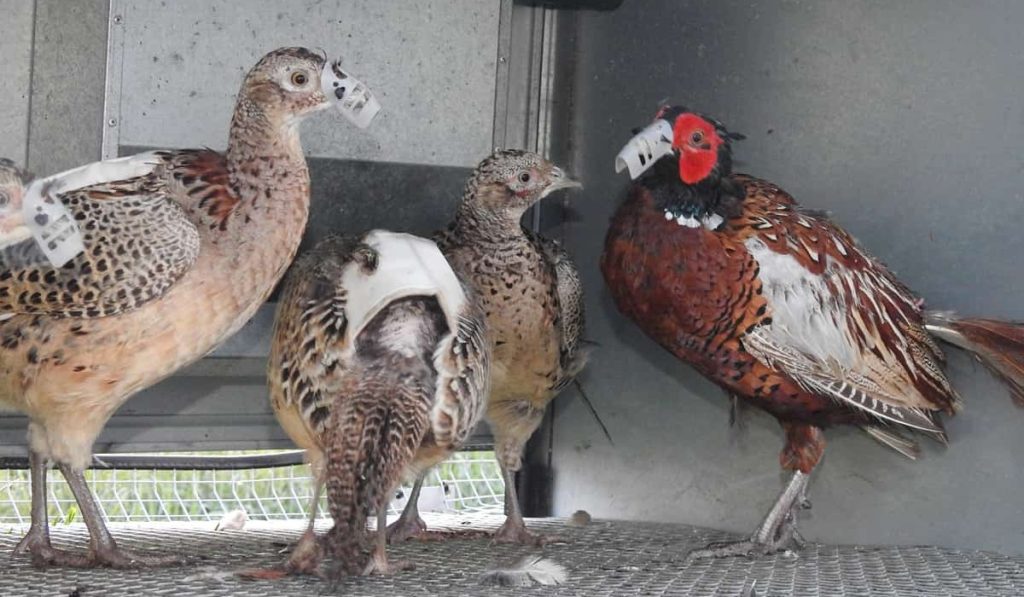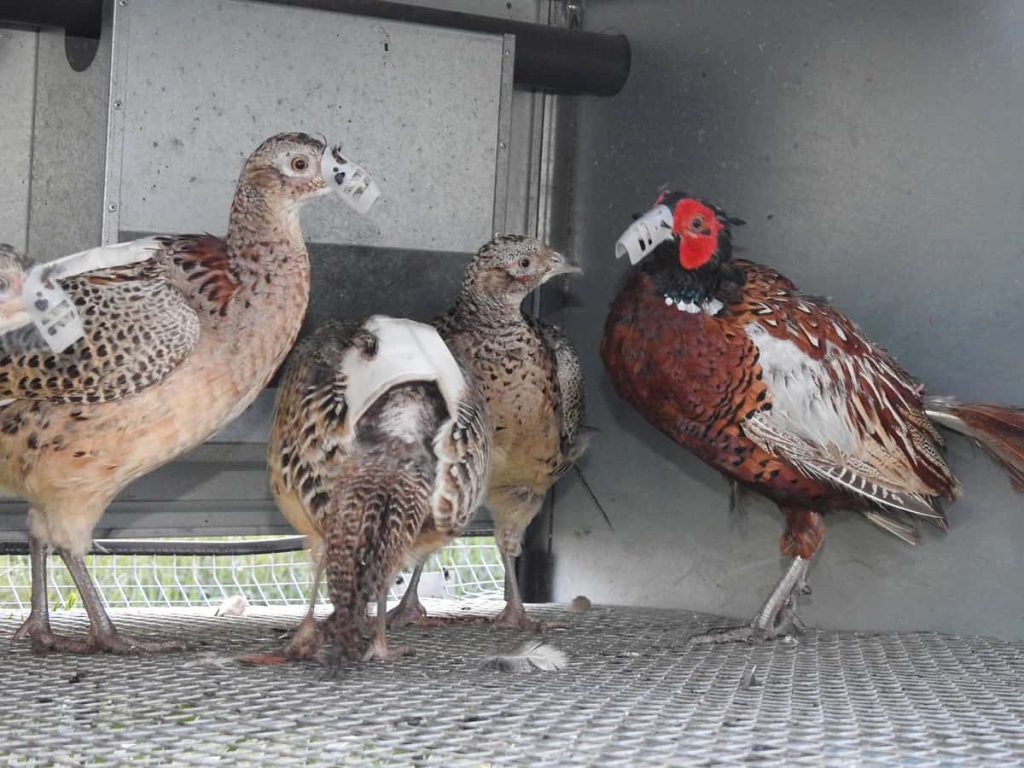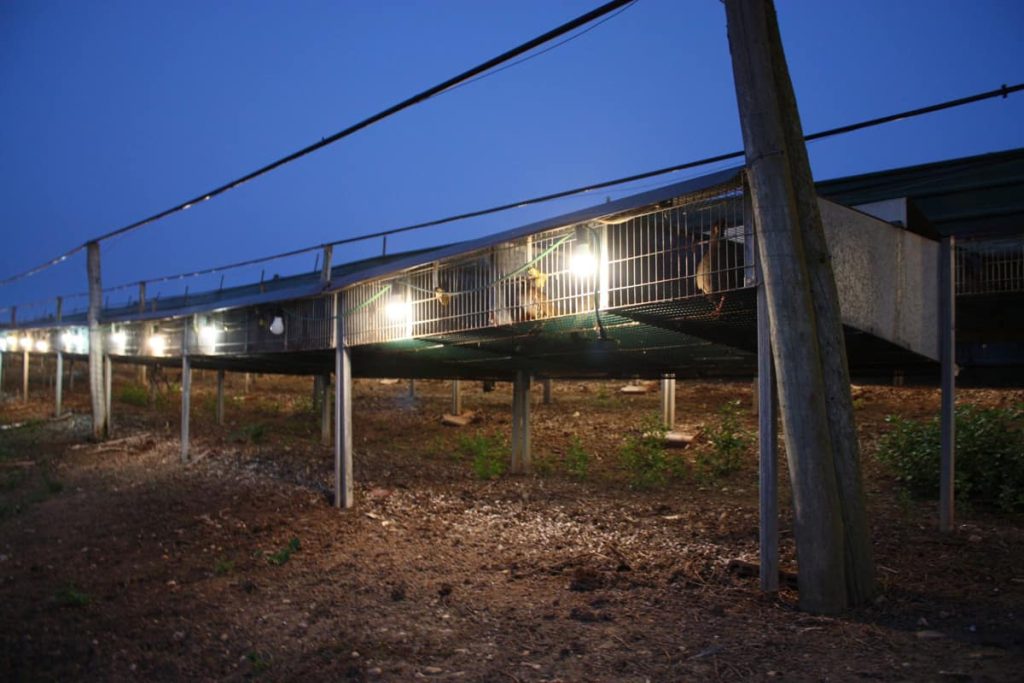

Avian flu is an ever increasing issue. With the “outbreak season” just under way, keepers of large numbers of farmed birds must take precautions to reduce the risk of flocks catching and spreading the disease. Game Farms are no exception to these rules; sitting at a dangerous intersection between farming and wildlife, pheasant, partridge and other birds who are reared for shooting often succumb to the disease.
Astoundingly, current DEFRA regulations, and an unscrupulous industry only too willing to take advantage of them, still allow birds who are reared for shooting within an avian flu control zone to still be bought and shipped out to a different area of the country prior to being released and shot, even at the height of a disease outbreak…as long as the bird’s destination is recorded. More worryingly still, game breeders’ track record of insanitary conditions or previous infectious outbreaks don’t seem to influence regulation, licensing or outbreak control measures.

On November 5th, an Avian Flu outbreak was announced in the Preesall and Wyre area of Lancashire, just hours before the entirety of England, Scotland and Wales was declared an Avian Influenza Protection Zone, due to increased incidences of the disease. Meaning anyone responsible for flocks of over fifty birds must now adhere to strict biosecurity rules laid out by DEFRA and the APHA.
Hyfly Game Hatcheries falls within the 3km Preesall and Wyre “Captive Bird (Monitoring) Controlled Zone”, which was declared after bird flu was found in a nearby flock of captive birds. Hyfly pride themselves on breeding Japanese Green Pheasant, Red Leg Partridge and Mallard. There having been a number of investigations and incidents at this site over the last decade and yet they can still legally sell and deliver these poor birds to clients outside of the controlled zone.
It should be noted that the Hyfly site is but a short distance from the Lancashire coastline; renowned for its wild and often migratory bird population – particularly at this time of year.
In 2017, Hyfly boasted of producing up 1.5 million birds per week during hatching season but feared bankruptcy after the HN58 strain of bird flu was found in their 10,000 strong breeding flock. Any birds which didn’t die after contracting the disease were killed. And yet, in the same year, Hyfly were able to host an international gun dog championship, which was covered by the HSA here: Factory Farm Hosts Gundog Championships
In 2020, the HSA released footage which showed horrific conditions for breeding birds held captive by Hyfly here: Horrific Cruelty Uncovered at Lancashire Pheasant Farm
Hyfly are by no means unique. The intensive rearing of millions of birds in restricted conditions prior to being released into the countryside to be shot each year provides ideal venues for rapid outbreaks. While spring time is spent rearing these unfortunate animals, shoots will start to release “game birds” into the countryside in the summer, to allow them up to a few months to acclimatise to their new found “freedom”, ahead of the shooting season. It’s no surprise therefore that a few months ago, in July 2025, Farmers Weekly reported that bird flu had been found to be present in Pheasants on a shoot in Winsford, Somerset. By August alone, 25,000 pheasants kept for breeding had come down with the disease and were destroyed.

Bizarrely, the bird flu “outbreak season”, as it is dubbed by the Animal & Plant Health Agency (APHA), is slated to begin much later in October, with the first outbreak of H5N1 during this season recorded on the 11th October; just one week after the pheasant shooting season began with millions being released across the UK. Why isn’t more being done to investigate the links?
The outbreaks this year outlined above have occurred in a regulatory environment that appears to be full of loopholes, overly complex and unenforceable. For example, game birds are subject to an interesting legal status, as illustrated by Wild Justice’s “Shroedingers Pheasant” article; they are legally classed as livestock up until the point of release, when they are then regarded as wildlife – despite the huge amount of management required to get them there – which can then be shot. This produces large “bags” (of dead birds) at the end of a shoot day or in many cases, piles of carcasses dumped into gamekeeper ‘stinkpits’ or other unregulated locations across the countryside, even beauty spots as reported by the BBC here: Anger after dead game birds dumped at beauty spot
Worse still, the industry continues to flout or resist regulations. In August this year, Raptor Persecution found that only 25.9 million out of a reported 50 million pheasants are properly registered by shooting estates.
In September, a public consultation on licensing the release of game birds to reduce the risk of bird flu in Wales was delayed and into October when the British Association of Shooting and Conservation continued to pursue a legal challenge against restrictions on the release of gamebirds near ‘special protection areas’. It is clear that the industry is willing to lobby and subvert to avoid scrutiny. Surely shooters aren’t worried that tighter regulations for the benefit of all might make their “sport” less profitable?
An HSA spokesperson said:
“Despite playing the role of countryside saviours, it’s clear that the shooting industry only cares about profit at the end of the day. It appears to be willing to exploit a weak regulatory environment and bird flu biosecurity control to keep the money rolling in whilst risking further spreading this horrible disease at the expense of the lives of millions of birds in their care or in the wider ecosystem. It’s just another way that they wreak devastation on wildlife in their hideous pursuit of blasting birds out of the sky. It’s time that DEFRA steps up its efforts to enforce existing regulation and to tighten licensing of shoots across the country.”
Support our vital work by becoming a member.
We are the only organisation that works directly in the field to save wildlife through direct action.
| Cookie | Duration | Description |
|---|---|---|
| cookielawinfo-checkbox-analytics | 11 months | This cookie is set by GDPR Cookie Consent plugin. The cookie is used to store the user consent for the cookies in the category "Analytics". |
| cookielawinfo-checkbox-functional | 11 months | The cookie is set by GDPR cookie consent to record the user consent for the cookies in the category "Functional". |
| cookielawinfo-checkbox-necessary | 11 months | This cookie is set by GDPR Cookie Consent plugin. The cookies is used to store the user consent for the cookies in the category "Necessary". |
| cookielawinfo-checkbox-others | 11 months | This cookie is set by GDPR Cookie Consent plugin. The cookie is used to store the user consent for the cookies in the category "Other. |
| cookielawinfo-checkbox-performance | 11 months | This cookie is set by GDPR Cookie Consent plugin. The cookie is used to store the user consent for the cookies in the category "Performance". |
| viewed_cookie_policy | 11 months | The cookie is set by the GDPR Cookie Consent plugin and is used to store whether or not user has consented to the use of cookies. It does not store any personal data. |